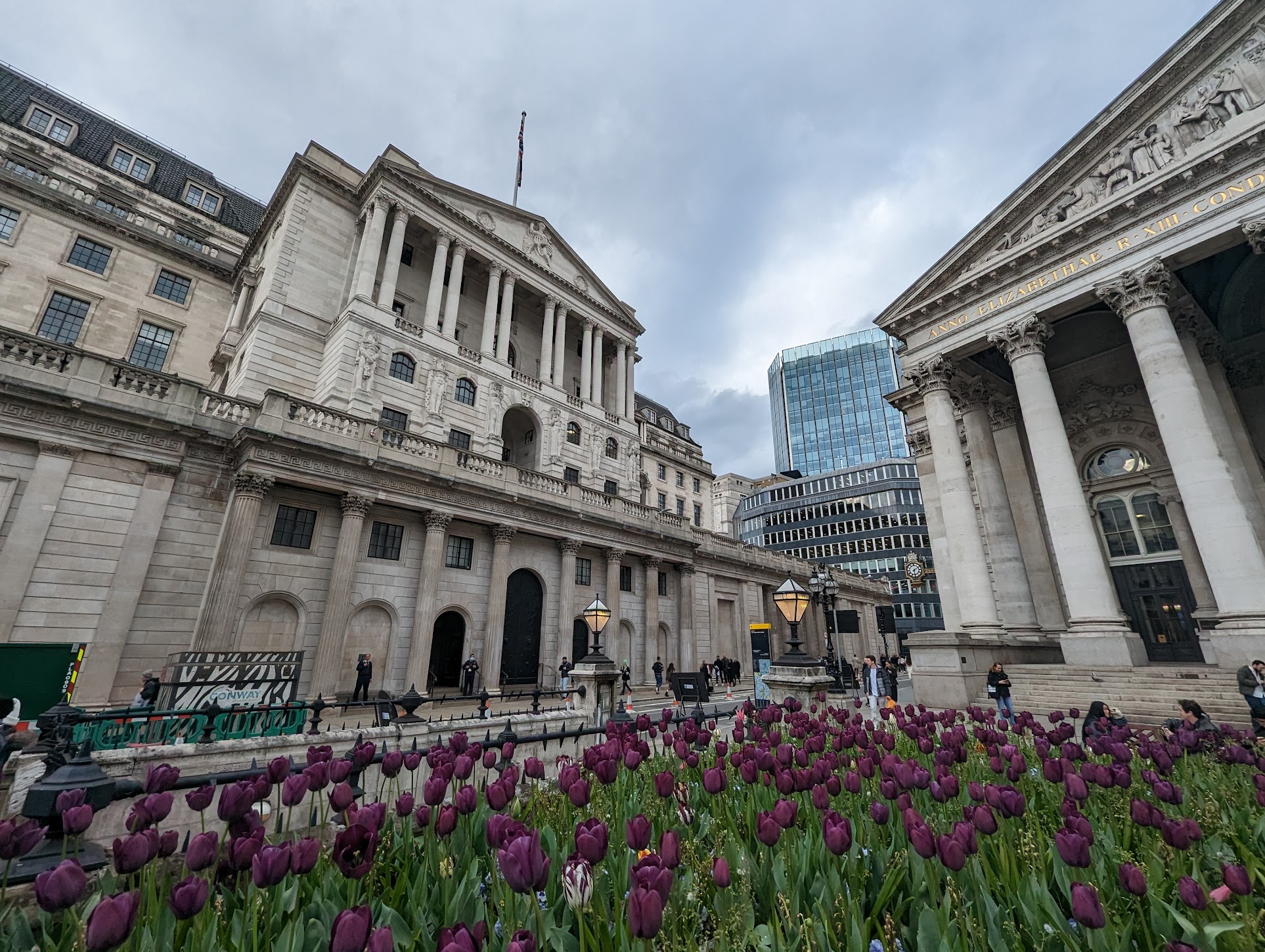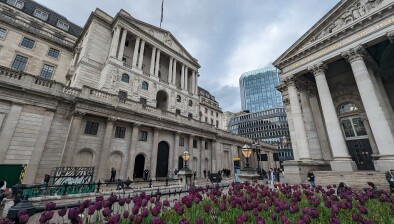UK inflation edges up to 4%

The Bank of England (credit: George Iordanov-Nalbantov)
UK inflation experienced an 0.1% increase in December, breaking a 10-month streak of decline.
Consumer prices rose at an annual rate of 4%, surpassing both the previous month’s figure of 3.9% and economists’ expectations of 3.8%, according to the Office for National Statistics (ONS).
The rise was primarily driven by hikes in alcohol and tobacco prices. The spike prompted traders in the swaps market and some economists to adjust their expectations, scaling back predictions of imminent rate cuts by the BoE.
The FTSE 100 index dropped by 1.8% as the possibility of early rate cuts diminished. Interest rate-sensitive 2-year gilt yields rose by 0.11 percentage points to 4.27%, while benchmark 10-year gilt yields reached 3.89%, the highest level since December 13.
The market-implied probability of the first interest rate cut in May fell to 55%, down from over 80% before the ONS release. Traders are now pricing in 1.12 percentage points of cuts in 2024, a decrease from 1.24 percentage points earlier in the day.
The BoE’s benchmark rate stands at a 15-year high of 5.25%, implemented to curb high inflation since late 2021. Services inflation, a key metric for policymakers, accelerated to 6.4% in December, while core inflation held steady at 5.1%.
Despite the unexpected increase in headline inflation, the figures remained below the BoE’s latest forecasts. In the central bank’s recent monetary policy report, predictions indicated headline inflation of 4.6% and services inflation of 6.9% in the final two months of 2023.
Jill Mackay, savings specialist at Scottish Friendly, commented: “Today’s figures show just how tricky it is to fully tame UK inflation at the moment.
“Despite this the Bank of England’s Monetary Policy Committee (MPC) will be hoping that the direction of travel for those figures in 2024 will ultimately be down, and while there may be stops, starts and bumps in the road, the worst of the UK’s inflationary detour in 2023 is behind us.”
She continued: “If that is the case it follows that the MPC will begin trimming the base rate in 2024. The key question is when? Financial markets seem to be pricing in cuts in the early part of this year, while other organisations, such as the IMF, are sounding a note of caution and expect a far slower and more gradual process that will likely move well into the second half of 2024.
“This may mean that for the first time in long-time cash savers can get interest rates from providers that are exceeding the headline rate of inflation. However, be warned, those cash rates will start to creep down along with the base rate. So, if you are thinking about your money in the medium to long term it may be time to invest to try and beat inflation consistently.
“If potential investors are concerned about the uncertain economic picture and the impact that may have on investment returns then looking for products like with-profits vehicles that offer protection against downside risk may be an option worth considering to get you started.”






